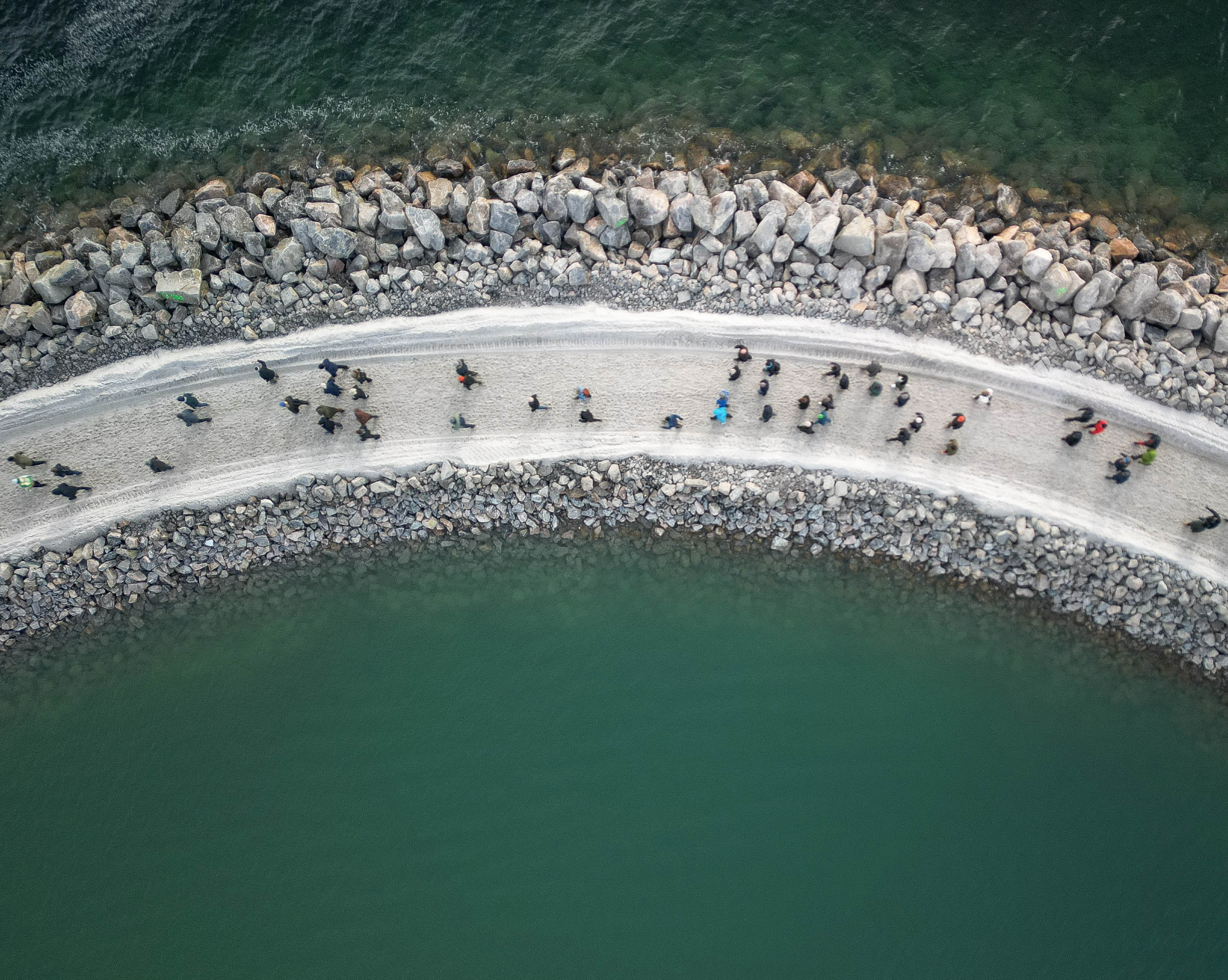In addition to the coastal landscape, Lynetteholm consists of a number of elements that will create new habitats for animals and plants:
Stone embankments
Lynetteholm’s more than 7 km of stone embankments will become home to mussels, seaweeds and many other plants that will gradually take root on the stones below the water’s surface.
Eelgrass
By& Havn shall endeavour to plant twice as much eelgrass as would compensate for Lynetteholm’s ‘carbon footprint’. Eelgrass absorbs CO2 and provides a good breeding and feeding habitat for fish.
Marine park
By & Havn is to establish a marine park, which will be a positive contribution to subsea nature. The design and location of the marine park is yet to be decided.
By & Havn will measure whether, in the course of time, Lynetteholm delivers a greater diversity of marine nature than was there before. A number of green organisations are involved in Lynetteholm's nature and wildlife projects.


Before the politicians finally decided that Lynetteholm was to be constructed, By & Havn commissioned an environmental impact assessment concerning effects on nature and the environment:
This means, among other things:
- That the natural state of the port area was plotted before construction was commenced
- That the way in which Lynetteholm affects the natural state is constantly monitored
- That By & Havn maintain a constant eye on specific parameters such as wildlife, plants, water quality etc.
- That the excavation work is monitored as the spread of the sea bed may release environmentally friendly substances
- That excavation work only takes place during the winter six months in consideration of marine wildlife and plants
- That Lynetteholm’s overall environment-monitoring programme is planned to continue for about 30 years
- That the monitoring programme is constantly adjusted in the light of new knowledge and results
- That the requirements as to how the monitoring programme is to be undertaken are laid down by the authorities





